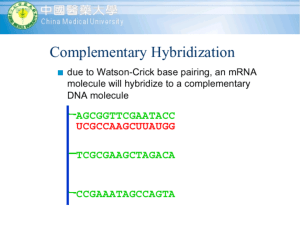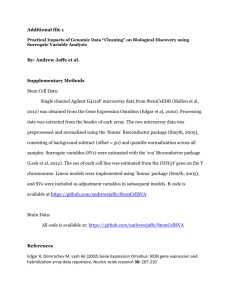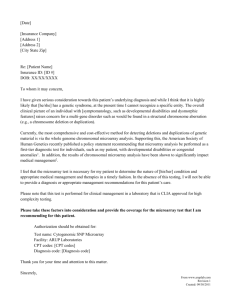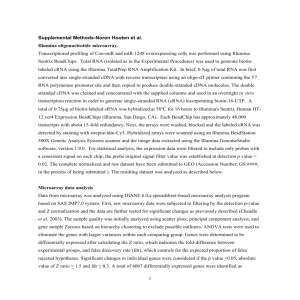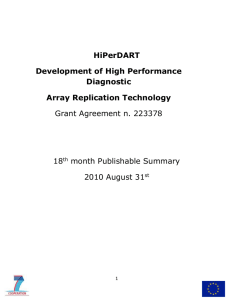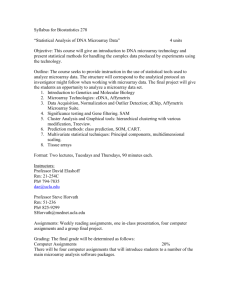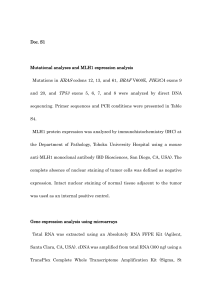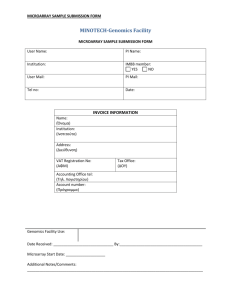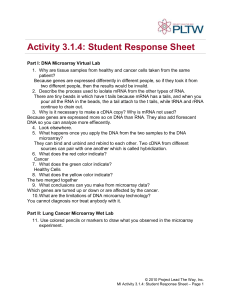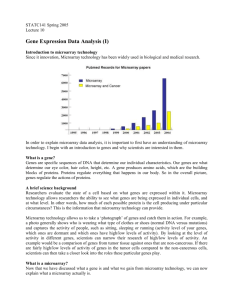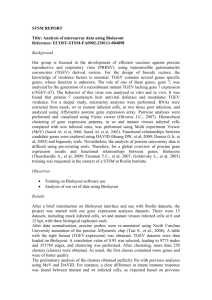Pathways to the analyses of microarray data
advertisement
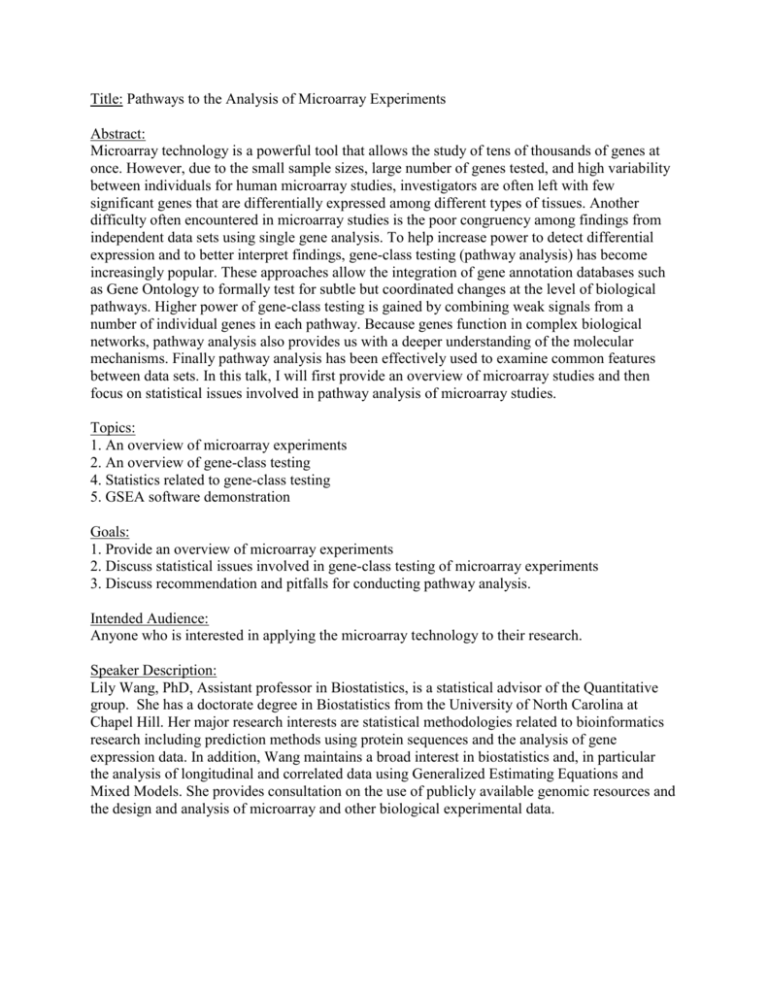
Title: Pathways to the Analysis of Microarray Experiments Abstract: Microarray technology is a powerful tool that allows the study of tens of thousands of genes at once. However, due to the small sample sizes, large number of genes tested, and high variability between individuals for human microarray studies, investigators are often left with few significant genes that are differentially expressed among different types of tissues. Another difficulty often encountered in microarray studies is the poor congruency among findings from independent data sets using single gene analysis. To help increase power to detect differential expression and to better interpret findings, gene-class testing (pathway analysis) has become increasingly popular. These approaches allow the integration of gene annotation databases such as Gene Ontology to formally test for subtle but coordinated changes at the level of biological pathways. Higher power of gene-class testing is gained by combining weak signals from a number of individual genes in each pathway. Because genes function in complex biological networks, pathway analysis also provides us with a deeper understanding of the molecular mechanisms. Finally pathway analysis has been effectively used to examine common features between data sets. In this talk, I will first provide an overview of microarray studies and then focus on statistical issues involved in pathway analysis of microarray studies. Topics: 1. An overview of microarray experiments 2. An overview of gene-class testing 4. Statistics related to gene-class testing 5. GSEA software demonstration Goals: 1. Provide an overview of microarray experiments 2. Discuss statistical issues involved in gene-class testing of microarray experiments 3. Discuss recommendation and pitfalls for conducting pathway analysis. Intended Audience: Anyone who is interested in applying the microarray technology to their research. Speaker Description: Lily Wang, PhD, Assistant professor in Biostatistics, is a statistical advisor of the Quantitative group. She has a doctorate degree in Biostatistics from the University of North Carolina at Chapel Hill. Her major research interests are statistical methodologies related to bioinformatics research including prediction methods using protein sequences and the analysis of gene expression data. In addition, Wang maintains a broad interest in biostatistics and, in particular the analysis of longitudinal and correlated data using Generalized Estimating Equations and Mixed Models. She provides consultation on the use of publicly available genomic resources and the design and analysis of microarray and other biological experimental data.
